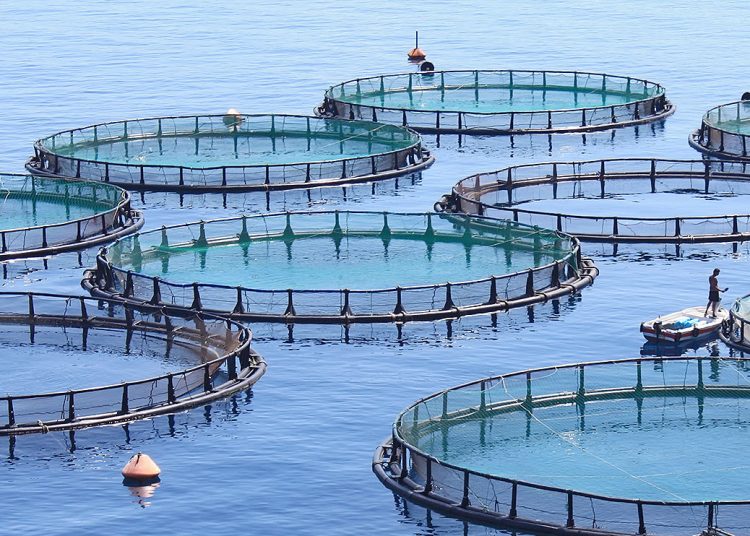After decades of neglect, Egypt’s lakes are undergoing development as part of a larger scheme to increase fish production and exports.
Launched by President Abdel Fattah El Sisi in 2019, the project is being implemented by the General Authority for Fish Resources Development (GAFRD), the Armed Forces Engineering Authority, the Suez Canal Authority, and some private companies.
GAFRD chairman Salah el-Mislhy said ten lakes — Bardawil, Borolus, Edko, Great Bitter Lake, Manzala, Mariout, Nasser, Qaroun, Timsah, Wadi El-Rayan —account for 12 per cent of the country’s total annual fish production.
“Development costs vary according to the condition of each lake,” Meslhi told the local media, adding that rehabilitating the 250,000-feddan Lake Manzala cost $2 billion.
Manzala in the northeastern part of the Nile Delta is Egypt’s largest lake with shores on the governorates of Port Said, Daqahlia and Damietta.
Illegally structures around the lake have been demolished and the canals linking it to the Mediterranean have been rehabilitated. Sewage treatment plants have also been constructed to prevent sewage runoff into the lake. A ring road has also been built around the lake to ensure easy access to it and facilitate the movement of goods and people.
Consequently, Manzala’s improved water quality means fish production was 80,000 tons in 2022, up from 60,000 tonnes in 2017, according to a report issued by the GAFRD last year.
In an interview with Al-Youm 7 newspaper, Agricultural Economic Research Institute Ali Abdel Mohssen said: “The plan to transform Egypt’s lakes into a major seafood source is being carried out in accordance with October 2021 law that stipulates lake development guidelines.”
Under the terms of the law, a new authority, which has been set up to protect and conserve lakes and fish wealth, is responsible for licensing fish farms and fish processing projects, as well as regulating fishing operations and managing fishing ports,” Abdel Mohssen said.
“Egypt is now 97 per cent self-sufficient in fish and that average fish consumption per capita is 20kg per year,” Abdel Mohssen added.
“Egypt produced 2 million tonnes of fish in 2023, of which 80 per cent was sourced from fish farms,” he said.
“Egypt currently ranks first in Africa and sixth worldwide in fish farming production, thanks to projects implemented over the last ten years,” he added.
In January 2021, President Sisi opened the first phase of the Al-Fayrouz fish-farming project, the Middle East’s largest fish farm, located196km northeast of Cairo.
On completion, the project will take up an area of 15,886 feddans with 5,908 tanks and annual production of 13,000 tonnes.
The Lake Ghalioun fish farm, which produces 5 million kilos of fish and shrimps per year, was opened in 2017 in the Delta governorate of Kafr el-Sheikh, 134km north of Cairo.






Discussion about this post